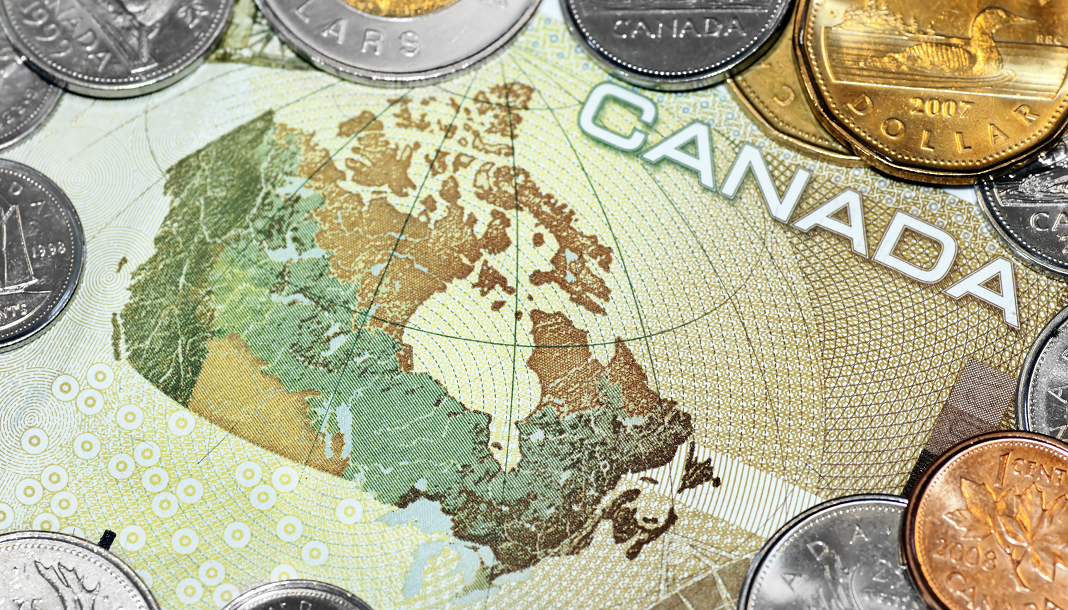Canada’s transition to a cashless society continues to gain momentum. What this means for our wealth, and overall financial responsibility are unclear, but early-warning signs suggest the negatives may far outweigh the ‘convenience factor’.
Cashless Society becoming real as Canadians ditch cash
By 2015, in a Bank of Canada Review it was determined that Canadians were now using cash in less than half their transactions. While probably not a shocking statistic to most, the rate as which we are moving to a cashles society, facilitated by government bodies and central banks, is alarming.
Economists in the U.S. and bankers in the EU went public in the idea of abolishing $100 bills and €500 notes in February of 2016. This would hasten the rise of digital payments and plastic transactions in those countries. It appears Canada doesn’t need the boost:
“Nowhere do people pay with plastic more than in Canada. An RBS report from 2011 found that paying by plastic — credit, debit and bank cards — amounts to 40 per cent of transactions, on average, across world economies. But the rate in Canada was 68 per cent, making the country the world leader in plastic payment.”
source: http://www.huffingtonpost.ca/2015/05/14/percentage-of-cash-transa_n_7283…
The anonymity and lack of transaction record have presented reasons for government bodies and banks to ban high denomination bills. The key reasons surrounding the abolishment of high-denomination currency notes have been to ‘deter illicit activities’ or due to their ‘easily transportable’ nature.
All this digital, plastic spending has not helped Canadians. The key measure of any nations’ debt load is the ratio of household credit-market debt to disposable income. The chart below says more than any words could:
Scarier still, in 2015, household debt rose 4.9%, the fastest pace in four years, to a record $1.92-trillion, according to a StatsCan report from March of 2016.
We have written about this disturbing trend repeatedly over the past three years. Beginning in 2014, in an article titled Death of QE, Birth of Cashless Society and then in Cashless Society coming to Canada and a country near you soon. Most recently I published an article titled Apple Pay fuels Cashless Society.
Zero Hedge reveals Cashless Society Motives
Zero Hedge has done a great job covering this story in recent months and wrote on the subject in respect to the U.S.:
“Our first question should be: just how big a share of our financial universe is cash? The answer is: vanishingly small. Look at this chart of total credit in the U.S. economy–$63 trillion–and total cash: $1.45 trillion. Cash is the thin red line at the bottom of the chart–it barely registers.”
image source: http://www.zerohedge.com/news/2016-05-24/war-cash-war-your-freedom-opt-out
Zero Hedge.com concluded that,
“Ultimately, the war on cash is all about increasing control by eliminating privacy and the freedom to abandon the debt-serf rat-race. I should have the right to conduct my business with cash and pay my taxes digitally. Cash is necessary to maintain some modicum of privacy in an age of all-pervasive financial repression, surveillance and the suppression of dissent.”
source: http://www.zerohedge.com/news/2016-05-24/war-cash-war-your-freedom-opt-out
Wherever you stand, on the control and conspiracy spectrum or whether or not a cashless society has been engineered by the banks and government, numerous studies have proven that individuals spend less cash and save more of their own money when consumers use hard currency in contrast to the plastic currently consuming in their wallets.
This article represents solely the opinions of Alexander Smith. Alexander Smith is not an investment advisor and any reference to specific securities in the list referred to in the article does not constitute a recommendation thereof. Readers are encouraged to consult their investment advisors prior to making any investment decisions. The information in this article is of an impersonal nature and should not be construed as individualized advice or investment recommendations
